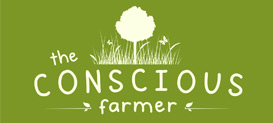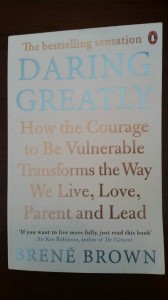If we want to be successful business people it’s not all just about doing the right thing in the paddock. We need to be good planners, good budgeters, etc, but something we often overlook is our mindset. The good thing about improving our mindset is that it not only improves our businesses, but also improves all aspects of our lives! Derek and I have been on a path of improving our mindset – and I suppose mindset is fairly apt to regenerative farming, because we are in essence regenerating our minds and this can have really great outcomes for our business.
I’m sure you’ve heard the saying that we only use 10% of our brain. Now I’m not sure if this is right, but what this is getting at is that we rely so much on our conscious minds and forget the role of our subconscious. (All of our teaching, schooling and universities are all aimed at developing the conscious mind). The subconscious mind is where our emotions come from (among other things), most of which are generated as a reaction to things around us, and are ideas and reactions formed from earlier life experiences. Some of these reactions will be positive and supportive while some of them hold us back. It is highly useful to be aware of these reactions when we are communicating and making business decisions. The tricky thing is, and what I’ve come to realise, is that we are rarely conscious of these reactionary emotions and THIS is what can make them difficult to identify and to change or improve, ultimately leading to an undermining of our success.
So we have to actually be more CONSCIOUS in the short term in order to re-train our subconscious in a more supportive manner. “Consciousness is observing your thoughts and actions so that you can live from true choice in the present moment rather than being run by programming from the past.”1
Why am I talking about Mindset?
I am talking about this because taking on different regenerative agriculture practices can break paradigms that we have held for a long time about how things are best done. We may have some resistance about changing that is being driven by subconscious ‘agreements’ that are not relevant to today’s situations. “When the subconscious mind must choose between deeply rooted emotions and logic, emotions will almost always win”.2 These agreements might relate to how we practice agriculture, worrying about what others might think of us or may be related to a fear of whether the new idea will work. So, we have to be very conscious about what’s driving our thoughts and reactions.
I am also mentioning it because I realise that we can be doing all the right things on the ground on our farms, but if we don’t have the right mindset to support this, our potential is limited.
I am also writing this because I have been reading and learning about this subject for a long time and I believe that the books missed something that was critical for me and if by me sharing, it helps you, then great. But first, what is a supportive mindset?
What is a supportive mindset?
Living above the line
Many of you will be familiar with this term or what it represents; it is conveying that we should always be in a positive state of mind. Specifically:
• Accountability (I have talked about this in a previous blog – Accountability is Powerful!).
• Responsibility
• Ownership
Below the line however is:
• Blame
• Complaint
• Excuses
• Denial
• Justification
Gratitude
It is also so important that we have gratitude for the good things – however minor we may think these are in our lives at any given time. What we focus on is what we get more of. So, being grateful is putting our attention on the good things. Do you notice how certain people regularly seem to have ‘one of those days’, while others seem to get all the breaks? While some may observe and think ‘of course they’re in a positive, grateful state, they get all the breaks’, but I would say they get all the breaks BECAUSE they’re in a positive, grateful mood.
It is also important that we are grateful for the challenges and the harder things, because they are offering us a chance to learn and better ourselves.
Many a business person has been introduced to Think and Grow Rich by Napoleon Hill, which talks about mindset, and I also suggest T. Harv Eker’s book, Secrets of the Millionaire Mind as a relatively quick read that is a good introduction to this topic in relation to business. While these books apply to business, the principles can be applied to all aspects of life.
If you haven’t read either of these, I strongly suggest picking one up as a starting point.
I also highly recommend The Four Agreements by Don Miguel Ruiz. The four agreements being:
1. Be impeccable with your word
2. Don’t take anything personally
3. Don’t make assumptions
4. Always do your best
While these Four Agreements are powerful in their very brief form, there is much to be learned about ourselves within the detail of each agreement that can only come from reading the book. The last agreement, ‘Always do your best’ is so important because that is all we can do and behavioural change does take practice and our best on one day will be different to our best on another day. If we practice this every day, then we will become kinder to ourselves and those around us and that can only be a good thing.
My experience
Now here’s the problem I had with these learnings and books. I agreed with everything that was said; the problem was, we only fix something when we think there’s a problem. I didn’t think I had anything to fix! I didn’t have the self-doubt talk in my head – there was no “I’m not good enough” and rarely “I can’t do that”. What I have identified however, is that the hold backs can be so much more subtle than a voice in our head. It can be as subtle as a feeling or a resistance to do something. Is there something that you put off? Logically (or consciously) there may be every good reason to go ahead with something, so why do you put it off? Often there is no logical reason, but there may be something in our subconscious related to an earlier life experience that is responsible for the resistance.
This subconscious conditioning can affect us in all sorts of ways – our business performance being one of these, as well as our willingness to adopt different regenerative agriculture practices.
How do we grow our mindset?
I don’t know about you, but I feel good in life when I am learning something new. It could be something new to practice on the farm or it could be some kind of personal growth – or it could be both simultaneously. Personal growth occurs when we do something that makes us feel uncomfortable or vulnerable. Now the actual doing might not be very enjoyable, as we don’t feel at ease, but it can feel really great afterwards.
I mean, let’s face it; if we keep doing things that are easy for us, there’s not much growth in that is there? Doing things that are comfortable for us keeps us at a similar level of competence.
This can be the difficult part, making ourselves do the things that we find uncomfortable and it might take you to have a mentor, friend, partner or business associate etc to keep you accountable to doing these.
The discomfort of something new might come from many things:
- our fear of potential failure
- worrying about what others might think of us
- a lack of certainty
- wanting everything to be perfect and knowing my outcome before I start
- even our fear of success!
A great read to learn more about personal growth is Daring Greatly – How the Courage to be Vulnerable Transforms the Way We Live, Love, Parent and Lead by Brene Brown.
Writing this blog makes me feel a little uncomfortable, as it is not within my normal topics and I don’t necessarily know how it will be received by you, my audience. I feel that this topic has been so important to me however, that I am doing it anyway.
The example that most people can relate to is public speaking. Most of us feel uncomfortable at the thought of public speaking. The thing is, if we don’t take on this fear, we will continue to feel like this for the rest of our lives. What Brene Brown points out in her book is that when we feel vulnerable about something it is not a nice feeling, but when we see someone else being vulnerable, we admire them and often wish we were brave enough to give it a go too. Also, chances are that the stories we tell ourselves about how awful it’s going to be are just that – stories, and are far worse than the reality turns out to be.
Failure
Another shift in mindset is how we consider failure. Always expect that when we try something new, there are going to be challenges and things that don’t go as we expect. Let me let you in on a little secret – if these challenges didn’t exist, EVERYONE would have amazingly successful businesses, because it would be SO easy. So, consider the challenges as getting one step closer to success.
I saw an interview with Sara Blakely (founder of Spanx undergarments), who said that as a child, each night around the dinner table her father would ask her what she failed at that day. They would celebrate whatever it was and move on. She is a billionaire today. What a mindset her father was instilling in her – that it’s OK to fail and failure isn’t the outcome, it is just a step along the way. See Sara’s business lessons here.
What about You?
Our friend and mentor, the late Bruce Ward, who Derek and I trained under in Holistic Management, suggested to our group that if we had blockages of some sort to explore these concepts through reading or with someone that could help. At the time I thought I didn’t really have any need for this. I reckon now that there would barely be a person alive (except perhaps the Dalai Lama!) that wouldn’t get something from the books and learnings that I have referred to here.
Have you read any of the books that I refer to?
Keep on Conscious Farming, Kirrily
References
1&2. Eker, T. Harv. Secrets of the Millionaire Mind. Think Rich to Get Rich. 2005. Harper Collins Publishers Inc. New York.




Great stuff keep it coming. A question though. When you stopped farming how did you get it back to grazing? Did you sow anything or let it go through the weed cycle back to a diverse native pasture?? Cheers Geoff